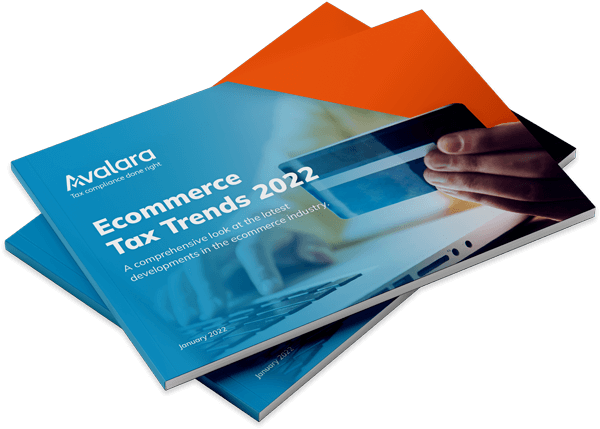
5 ways to boost online retail operations in 2024 | Avalara
The start of the current decade has been a tumultuous period for retailers. However, significant technological advances following years of turmoil in the world’s biggest markets have meant that 2024 is poised to be an opportunity for retailers to reset their ambitions and start on a path to recovery.
In this article, we’ll suggest 5 ways to boost your online retail operations in 2024 and explain how your business can increase revenue through new ways of selling.
1. Embrace new ways of selling
Trying out new ways of selling can help a business tap into new markets and improve its cash flow. We have broken down two of the most popular ways this can be achieved below:
Marketplaces
Third-party sellers, particularly online marketplaces, have been a revelation for both independent and corporate businesses. While the likes of global marketplace facilitators such as eBay, Etsy, and Amazon have enabled smaller merchants to sell their goods, larger companies have also utilised marketplaces to test the waters and try out new markets or products as they look to boost their revenue.
While marketplaces do have specific tax and compliance rules to keep in mind, it’s important to remember that being a marketplace seller usually means you don’t have to worry about remitting taxes.
The subscription model
The subscription model has become increasingly commonplace amongst many businesses that are looking to keep their customers coming back for more. While not necessarily a new concept, the modern subscription-based business model has been popularised by the likes of Netflix and Spotify and has allowed virtually every industry to try its hand at offering a unique subscription service.
There are several benefits of using a subscription model, but the primary benefit is a predictable and consistent revenue stream. Subscription-based models allow businesses to forecast their incoming revenue better and maintain a more consistent revenue stream than they would be able to do without a subscription.
However, the tax footprint for subscription-based businesses is larger than that of normal retail companies, and with added liabilities comes a greater risk of noncompliance.
If you’re looking to implement the subscription model, remember to do your research: will offering subscriptions open up tax liabilities in new areas? Will selling your goods as a subscription service instead of a product change their taxability? These are vital questions to you must answer before altering your business model.
Interested in learning more? Why not take a look at our recent subscription-based economy guide?
2. Review your supply chain
Whether due to the ongoing war in Ukraine (and its impact on neighbouring countries), regional politics or other global economic issues, supply chain disruption is still very much a concern to many retailers and other industries worldwide. According to research by KPMG, 71% of global companies highlight raw material costs as their number one supply chain threat for 2024.
In order to keep your business profitable in 2024, establishing a resilient supply chain is an absolute necessity. However, to do this, first, review your supply chain to see which areas need improvement. Specifically, we’ll look at shipping and warehousing next, as these two areas are the most common areas that most retailers need to improve.
Shipping
Having a great logistics setup means that you no longer need to worry about shipments and items not arriving to your customers.
However, very few retailers have the financial capability to create a logistics network that rivals that of Amazon. As a result, many businesses rely on third party carriers and their extensive network of delivery options in order to fulfil their orders.
In addition, retailers operating in Europe should also be aware of the EU Customs Union, which charges no customs duties on trade between member states. Because of the Customs Union, your business can save a significant amount of money if you import shipments into one country and then distribute them overland across the EU.
Incoterms should also be given due consideration as part of optimising your logistics. Deciding whether you’ll send packages as DDP(Delivered Duty Paid) or DAP (Delivered At Place) is very important, as DDP has a number of significant advantages.
Warehousing
Warehousing optimisation is also another way that retailers can save on their logistics costs. Bonded warehouses (also known as custom warehouses) allow you to delay the payment of import VAT and customs until the sale of your goods has been finalised, therefore saving you upfront costs associated with being charged as soon as the shipment arrives in the country.
In addition to bonded warehouses, you can also consider outsourcing storage to third parties to cut down operating costs further. Depending on the level of service you choose, outsourcing can also mean that your business doesn’t need to pack or send any goods to carriers, as a third party can do all this as well.
3. Apply the right product codes
HS (Harmonised System) codes are numeric codes used by customs authorities for international shipment identification. Over 200 countries worldwide have adopted the Harmonised System — comprising a staggering 98% of world trade.
Using the correct HS code is absolutely necessary to ensure your company’s retail operations operate efficiently and without delays to your customers. Incorrect HS codes can add additional customs expenses and, in some cases, can even result in severe penalties and fines.
As the Harmonised System Nomenclature is fairly complex and contains thousands of HS code variations, it would be prudent for businesses to consider an automated approach. Advancements in technology have meant that artificial intelligence can now be used to help businesses remain compliant when dealing with the complexities of HS codes. Please see our Ultimate Guide to HS codes to learn more.
4. Prepare for peak seasons
Peak sales seasons are a great time for retailers to scale up and attract new customers to their business. Having an exceptional peak season can set a business up for months to come, as the increased revenue during the peak season can be reinvested into other business functions.
Here are two peak season tips that you can follow to get your business prepared:
Review your online presence: Conduct a thorough review of your online business and presence by optimising your existing ecommerce platform, streamlining the checkout page, and checking both the design and written copy of your product pages. In the lead-up to the peak season, it’s also worthwhile getting your social media team ready to begin marketing campaigns and responding to customer queries.
Consider the tax implications: While growth and new business are the aims of any retailer during the peak sales season, it’s important to remember that any significant audience expansion could create new tax obligations. For example, under current legislation, if your business is in the UK and you have reported profits above £250,000, you will be liable for paying 25% corporation tax instead of the 19% that you would have paid if your business generated under £50,000.
5. Be aware of impending changes
Although it doesn’t directly generate revenue, keeping abreast of any future tax and customs changes that could affect your business is crucial in optimising your online retail operations.
At Avalara, we understand that being aware of each and every legislation change while remaining tax compliant is a considerable task for any business, especially those who are trading across borders. Whether you’re in need of customs duties and tax support, VAT Reporting and Registration advice, or e-invoicing assistance, Avalara is here to help.
Interested in learning more about boosting your online retail operations? Why not take a look at our latest guide — download it for free here.
Ecommerce Tax Trends Report 2022
Get a comprehensive look at the latest developments in the ecommerce industry.

Stay up to date
Sign up today for our free newsletter and receive the latest indirect tax updates impacting businesses selling internationally straight to your inbox.



